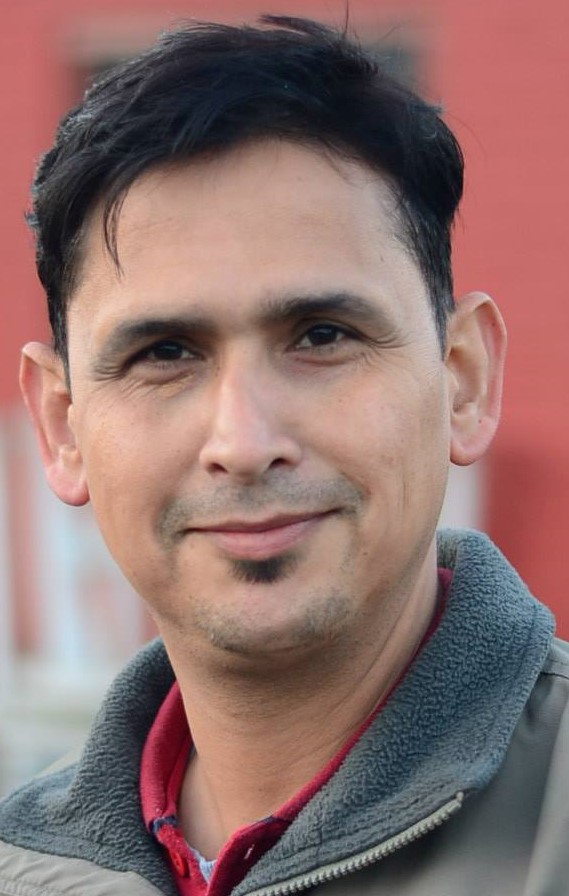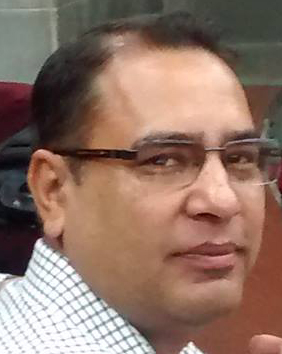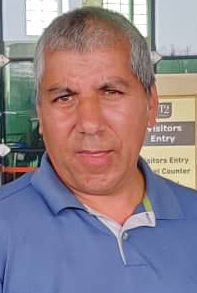A Conversation with Anusha Gyawali, Shephalika Dhakal and Saugat Bastola
THE BEGINNING:
How was your journey as a student?
My residence was on the outskirts of Kirtipur. At that time, there was no school around my home. So, I had to go to the market area for my schooling. I completed my education up to grade seven from Bagh Bhairabh Secondary School in Naya Bazar, Kirtipur. I appeared for the SLC exam from Laboratory School, Kirtipur. After that, I did my ISc in St. Xavier’s College, Maitighar, and the rest until PhD in Kathmandu University. After that, for six months, I was at the University of Heidelberg, Germany, for my post-doctoral degree.
I was among the top 3 students throughout the years in my school. However, I don’t call myself a bright kid in my school because I don’t think I did as much as I could have.
Is there something you wish you knew when you started college?
When I went to St. Xavier’s College for ISc, I felt a huge transition. There were strict rules and regulations. A significant challenge for me was to manage time. They had a rule where students were only allowed to enter until 9 AM. Anyone who happened to arrive after 9 was sent to the principal’s office and given a late slip. Time was never an issue in my school as it was relatively nearer and I used to go by bicycle. Time came as a burden to me in the college. Since I had to travel far and had to use a local bus, I was often late. So, later, I had to rent a room and stay in Kupondole alone to manage time.
That’s one thing that I wish I did something about.
Another thing is, I couldn’t score well at the beginning of my I.Sc. One of the reasons might be because I was in a challenging environment. Most of the students from the so-called ‘top 10 rank’ in SLC were there competing with me. Moreover, I had typhoid during the exams. Because of all these, I didn’t score well. And that is one of the things I wish I could change.
Do you consider any of your teachers your mentors? Could you share one memorable experience with that person?
One of them is Professor B.S. Rao. He was the Head of the Department of Pharmacy until 2004. There was a lot of crisis in the department at the time. All the teachers had resigned due to problems in remuneration. At such a time, he worked with everything he had, brought teachers from India, and kept the Department from collapsing. He is one of the reasons the Department is at the state that it is today. I learned a lot from him, not only as a teacher but also his skills in management and how he handled all the pressure.
Another person that I consider to be one of my mentors is Prof. Dr. Panna Thapa. He taught me in my Masters. He guided me through every essential aspect of my research, and I am very thankful I had him as my mentor.
The third person I consider a vital mentor is Professor Ellaiah Poluri from Andhra University, one of my PhD. supervisors. If I didn’t have his supervision, it wouldn’t be possible for me to complete my PhD. I went to Andhra University, Visakhapatnam with my thesis. I was staying in a hotel on the first day. But he invited me to stay at his own home. It turns out, he used to let all his PhD. students stay there. He devoted a lot of time and effort, which groomed my thesis entirely.
Professor Stephen Wolfi at Heidelberg University is another person whom I consider an essential mentor. I got the Erasmus Mundus scholarship for my post-doc, but I wasn’t sure where to go. I wrote him an email, and he called me there. I didn’t have much experience here in the lab, even if I had done PhD because the lab setup wasn’t up to the mark at that time. So, he assigned a person just to guide me with the lab works.
These four people are the ones who I absolutely cannot forget to mention. I believe that there is still a lot to learn, and I will hopefully have more people who will guide me. But so far, these people have played important roles in guiding me through my learning experiences.
What/Who inspired you to become a better version of yourself? In what ways he or she has helped you?
My father is the one who I consider my idol. He was a person who was very keen to learn. By profession, he was a cook. Although he didn’t have formal education, he learned the English language and took training to become the chief cook in the American Embassy, for First Secretary. He struggled a lot, and maybe that’s the reason he always said that he would spend everything on our education.
He had the pain of not being able to get formal education. He went through a lot, and had big dreams for us. That was always his sole focus. His teachings have always stuck with me. I still remember, he always told me not to waste time roaming around. He said that if I studied well, I would go around the world. I recall this every time I go abroad, which is, as he correctly predicted, a lot.
Could you tell us about any incident that led you to choose a specific direction in life? Were there any mentors involved in the decision-making process?
By the fourth year of my Bachelor’s degree, I was sure I wanted to be a teacher. In the fourth year, two teachers were responsible for all of our subjects! I was very interested in teaching, too. I used to finish studying and help my friends study even during exams. I had expressed this intention to the Department as well. I was in National Healthcare Pvt Ltd, Birgunj, for my internship. That is when I got a call from the Department asking me to come to teach.
I hadn’t even finished my Bachelor’s degree, and I was already offered a job from 3 different companies. That’s how much shortage of human resources there was in pharmacy. I could’ve easily enter the industry. But I knew what I wanted, so I came back to the University, through a terrible storm and traffic on the way due to which I barely even made it on time for my interview and joined immediately.
PROFESSIONAL CAREER
How was your journey as a teacher and how did your passion for teaching change over time?
I and Rajani Shakya, who is currently the Head of the Department of Pharmacy, joined the Department together as Teaching Assistant back in 2000. In the beginning, we were not allowed to teach. Rather Rao sir gave us the task of calculating chemical stock and setting up the lab. After that, we started working as lab assistants. Maybe eventually Rao sir saw potential on us, maybe it was because of the human resource crisis in the Department, we were given classes.
I worked and taught as a Teaching Assistant for about 3 years. Then I became a Lecturer and eventually an Assistant Professor. I worked as an Assistant Professor for about 11 years and was finally promoted to Associate Professor.
During these years, I started to enjoy teaching. The most memorable part and the hardest times of the journey were during my Master’s and PhD. I was a full-time teacher then. During my PhD, I and my colleagues used to give lectures from 9 to 4. After 4, we worked on our research and projects around 2 to 3 in the morning, slept for a bit, and went for the class again at 9 in the morning. These were pretty tough times.
I still recall the time when my abstract was accepted for a conference in India. I had to collect data for the presentation. Since research culture was not a thing in Nepal — we still haven’t developed such culture — I had to work through the night in the lab alone. The next morning I designed a poster in PowerPoint and went to Putalisadak and got the banner printed and left for India immediately.
There are many incidences like these. There was a lot of struggle and tough times. The way to reach where I am was not easy. In between, I started to like and enjoy the profession.
How do you treat your students? How do you assess which students require the most attention?
Having taught for 20 years, I can easily assess the students that are weak in class, and the students that require my attention. My lectures are also focused on such students. I constantly check whether students are attentive in my classes. Recently, I have given them an assignment that cannot be solved just by the content of the slides. I have explained the assignment in my class. Just before this interview, I received a call from a student. He complained he could not find any hints in the slide.
The lectures I give involve concepts of mathematical modeling. In the online classes, I have been teaching using a touch pen. I know the students are having problems understanding the classes. I am continuously raising this issue in the Department. The talented students can learn themselves if resources are available. But for weak students, I know my lectures haven’t been effective.
Having experienced the problems regarding time management myself, I am very strict on students’ punctuality. I don’t allow them to enter the class after the allocated time. This is also because students entering in between the lecture distract the class and might deviate me from the content I was delivering. There are some instances when I have even sent students out of the class. I believe that students must understand that there are specific behaviors that will not be tolerated in class. Like every other teacher, I also watch every student in the class that I am teaching. If they show behaviors that are not acceptable to me, I will give them a penalty. Excusing such activities means encouraging students to amplify those actions. It is best to put a stop to it early.
Apart from the classes, how often do you stay in touch with the students?
Other than in the class, I love interacting with the students, knowing their perspectives, and helping them in their problems. I am the coordinator of the departmental student club. Even during the pandemic, I am frequently organizing online meetings to stay in touch with the students.
I usually spend maximum time with the students of Bachelor’s and Master’s involved in the projects. Because I had faced difficulties while conducting research, I know the problems they will face. As I have said before, research culture is still to develop in Nepal. Students are not given additional training and workshops. We do not have enough facilities as well. So, as a supervisor, I and my other colleagues have to find a way to deal with these problems.
When supervising these students, I target that at least one article each from Bachelor’s and Master’s gets published.
In twenty years of your professional career, you have taught many students. Could you share with us some of your experiences when you have felt proud of the students you mentored?
There are many incidences where I have felt proud of my students. I recall an incident when I went to Australia with my wife for her PhD. My students found out that I was arriving there. They assisted me in finding accommodation and setting up the room. Well, I don’t mean I was proud because they helped me but because I knew that they were studying at a university in Australia. It makes me happy when I find my students wherever I go. If they know I am coming to the place where they currently live, they reach out to me. This gives me immense pleasure.
Some of my former students are faculties in the Pharmacy Department of KU, some are studying abroad and some are even involved in multinational companies. So, whenever our products achieve something great, it is natural we become proud of them.
What is the best part of mentoring? Have you ever been called a mentor?
Well, some people have openly called me their mentor and others have hinted that I was their mentor. I have learned about it indirectly from their parents or relatives. Some students even comment that “If it had not been for Uttam sir, I would not have been this apt in these subjects”.
I constantly collect anonymous feedback. I get some ideas about how students receive me from there as well. I also get negative feedback now and then; some of them are academic and others personal. The personal comments maybe because of some harsh decisions I have taken. I even had to disqualify students from taking the end semester examinations due to their repeated negligence about their attendance after repeated warnings.
Apart from this harsh decision, there are many events I reminisce. Once when I was returning from India, I got stuck in Mahendranagar due to traffic disturbance. There was a diploma college in which I got an opportunity to take a class. One of the students of that class later joined for a Master’s in a college at Kathmandu. He remembered me from that one class I took way back and expressed his gratitude. It was a very emotional moment for me.
IN CONCLUSION …
Besides studies, do you have something you wish you had done differently?
Besides studies, I can predict easily where the students feel trouble in doing their research and projects. I feel that I could not learn enough even during my PhD. But I got to visit different places. When I was in Australia for about six months, I got a chance to contribute to The University of Tasmania as a Casual Academic Officer (CAO). My work was to supervise MPharm students in their dissertation. I came to realize what things were lacking for learning here in our country.
Technological advancement has reached a peak. But here we are still following traditional ways of performing any research. If given knowledge and access to different software, it will reduce time and direct the performance productively. As a CAO, I was given access to that software where I could learn and now I can train my students. New techniques in any work increase the productivity of the work. So, proper training needs to be provided to students by detecting their problems and providing them with noble solutions. I believe if anybody is assigned to do the work in the traditional manner, it is going to be a sloth’s race.
Why are our data not published but rejected? It’s because of the lack of reliability in ‘Quality of work’. No matter how much effort one gives to the work, the final product always depends on the quality of setup that we have. Because of the lack of setup, we lack quality and hence failure in replication done by renowned journals. So far from the experiences that I learned during my international exposure, I feel that I am not being able to bring most of my learning into practice because of the lack of setup and facilities. If I could bring at least some of the things that I saw and learned during my learning phases, it would mean a lot.
In your point of view, what might be the attributes to become a mentor?
I consider experience one of the important attributes besides knowledge. Furthermore, resources are equally important for good mentoring. In my opinion, “Mentoring is a two-way process”. The mentee needs to be equally enthusiastic as the mentor.
How does the work environment affect mentorship?
The academic environment surely does affect mentorship. As I already mentioned that resources and their mobilization create a certain type of environment. For instance, in a team, if some people are working very vibrantly for any research-based activities, it automatically creates an environment for other members to actively participate at the same pace. But in absence of the research environment, it is likely for all of the members to get less engaged in their works. Besides, other factors such as health play an important role. I consider myself very lucky to be able to survive after the stroke because, in most of the cases similar to mine, people go to a coma, or even lose their ability to speak. Sometimes here at Kathmandu University, sometimes I suffer because of my health issues. I have a project to handle but I am not capable of working by going into the lab because I am not independent fully. But it has never been the matter that got me into depression. At least I am able to perform my personal activities by myself and go to the places wherever I want if I get any support. Even in this condition, I have attended two international conferences as a speaker; one in India and another in Bangladesh. I feel very grateful for whatever I have done so far. So yes! Health has obviously a greater impact as well.
Mentors don’t necessarily have to be parents, or coaches. What is your point of view in the statement? Can anyone be a mentor?
Yes, anybody can. There was my roommate when I was studying B Pharm, who has now established an industry of his own. As I am only engaged in teaching, I do not have enough knowledge for practical implications for any problems. So, while I design any projects, I communicate with him frequently for better practical knowledge on the problems and what industries are looking for. I am generating ideas from him considering him a mentor. Hence, anyone can be a mentor. It is not a matter of compulsion whether the mentor needs to be a coach or a teacher or any of the family members.
Do you want to share anything from your experience throughout the journey of mentoring and being mentored?
When I look back at my life and the struggles I had, I realize that I worked with loyalty and with no greater expectations. My motto is: “Let’s move on the cycle of life, anything that is to come will surely come!” Most people pre-plan each and every activity and their consequences for the future and move accordingly. If they could not meet their plans, they get frustrated. But this thing never came to me. Satisfaction is the greatest achievement. So, without having greater expectations, if one focuses on the work, they will certainly succeed and this will ultimately result in satisfaction.
[Dr. Budhathoki is Associate Professor at Dept. of Pharmacy. Anusha, Shephalika and Saugat are pursuing BBIS in School of Management.]




